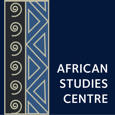Dr Joanna Lipper
Dr. Joanna Lipper is an award-winning filmmaker, photographer and author. As a Lecturer at Harvard, she taught Using Film for Social Change (2011-2015) in the Department of African and African American Studies. She is a Research Associate at African Studies Centre, Oxford School of Global and Area Studies; a Visiting Academic and Senior Member of St. Antony’s College, University of Oxford; a Research Associate at the Centre for Creative Industries, Media and Film Studies, SOAS, University of London; and a member of the National Advisory Board at the Hutchins Centre for African & African American Research at Harvard.
Based in London and Oxford, Joanna Lipper runs Vertumnus Productions. With a commitment to creating ground-breaking roles for women onscreen, this company aims to engage global audiences with narrative feature films and documentaries that inspire timely and provocative conversations. Current projects Lipper is developing to direct include a feature film adaptation of the internationally acclaimed novel Stay With Me by Ayọbámi Adébáyọ.
Dr. Lipper has a PhD in Women’s Studies from University of York, an MSc in Psychoanalytic Developmental Psychology from UCL and a BA in Literature and Film from Harvard. In her research, teaching, activism, scholarship and related creative practice as a film director and producer, Dr. Lipper utilizes an interdisciplinary, intersectional approach combining Feminism and Gender Studies, Women’s History, African and African American Studies, Social and Visual Anthropology, Political Science, Ethnic Studies, Psychoanalysis, Human Rights and Trauma Studies – all channelled through the lens of Media and Film Studies. Her current region of in-depth focus is Nigeria.
Lipper’s most recent documentary, The Supreme Price, traces the evolution of the Pro-Democracy Movement in Nigeria and efforts to increase the participation of women in leadership roles. The film received the Gucci Tribeca Spotlighting Women Documentary Award and was named Best Documentary at Africa International Film Festival (AFRIFF). The film was nominated for a Grierson Award and an African Movie Academy Award. An extended trailer from The Supreme Price was commissioned to launch Gucci's Chime for Change Women's Empowerment Campaign at TED 2013 and globally. The film was selected as the closing night event of the Aspen Ideas Festival in 2014. Impact and outreach campaign events related to the film were conducted in partnership with Women for Women International, Vital Voices and the U.N which distributed the film in Europe in their Ciné Onu Programme. The film was released theatrically and was broadcast on television in over fifty countries. Dr. Lipper partnered with iREP and Tunde Kelani’s Mobile Cinema Initiative to execute a grassroots impact and outreach campaign for the film in Nigeria. A transcript of a recent Keynote Lecture by Dr. Lipper was published in The Lagos Review. Her transnational creative practice as a filmmaker was profiled in The Nigerian Tribune.
Lipper’s work as a documentary filmmaker has been supported by funded with grants from the MacArthur Foundation, Ford Foundation, ITVS, the Gucci Tribeca Documentary Fund, Chicken & Egg Pictures, Women Make Movies, IFP Spotlighting Documentaries, Doc Society and The Fledgling Fund. Lipper's critically acclaimed book about teen pregnancy and parenthood, Growing Up Fast, was published by Picador in 2003.
Lipper's photography has been published and exhibited at museums and galleries in the US and overseas. In 2016, her photographs were featured in the exhibition Chief Nike Davies-Okundaye: The Power of One Woman at the Gallery of African Art (GAFRA) in London. This exhibition was profiled on London Live.
While teaching as a Lecturer at Harvard, Joanna Lipper supervised many student films spanning geographic regions and cultures, including one that won the Girls Impact the World Award and was profiled in a feature article in The Harvard Gazette.
Dr. Lipper’s recent research has focused on the theory and creative practice of book-to-screen adaptations and musicals; on using film for social change across cultures and geographic regions; on women’s leadership; and on the theory and practice of the feminist documentary filmmaker as historian, archivist and activist, creating new representations of women's history onscreen. Current research interests include masculinity, femininity and conceptions of parenting and the family in contemporary Yoruba Culture; the portrayal and re-enactment of women's individual and collective trauma under military dictatorship in Nigeria; Nigerian pro-democracy activists’ use of media to amplify their voices beyond censorship and propaganda; and the specific postcolonial challenges related to working with archival footage shot in Nigeria.
Research Interests: masculinity, femininity and conceptions of parenting and the family in contemporary Yoruba Culture; the portrayal and re-enactment of women's individual and collective trauma under military dictatorship in Nigeria; Nigerian pro-democracy activists’ use of media to amplify their voices beyond censorship and propaganda; and the specific postcolonial challenges related to working with archival footage shot in Nigeria. The theory and creative practice of book-to-screen adaptations and musicals; using film for social change across cultures and geographic regions.




